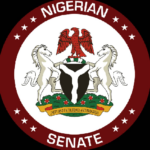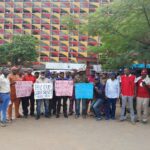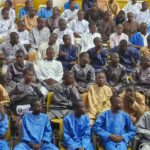Some 72 hours to the inauguration of President Bola Ahmed Tinubu and governors across 28 states in Nigeria on May 29, 2023, the Department of State Service (DSS) released a statement, saying that it was aware of “plans by subversive elements to disrupt the programmes in parts of the country”, noting that, “The aim is to undermine security agencies’ efforts at ensuring peaceful ceremonies as well as creating panic and fear among members of the public.”
The service neither named the “subversive elements” nor informed the nation of what it intended to do with them, but it went further to advise “citizens, the media and civil society organisations (CSOs)” to adhere strictly to security and civil protocols during the events.
“They are also urged to shun fake news, false alarms, skewed reportage/narratives and sensationalism that may likely inflame division, tension and violence prior to and after the exercises,” the service added.
That was not the first time that the DSS would engage in what many have described as “political language”. Indeed, between March 2022 and May 26, 2023, the DSS issued no fewer than six statements where it “uncovered a plot to incite violence in some parts of the country” or something not remarkably dissimilar.
Tinubu orders DSS to vacate EFCC Office
The DSS must conduct its duties as a secret service
Many believe this is at variance with the mandate for setting up the service, often referred to as Nigeria’s secret police. For instance, in March 2022, the service issued a statement warning of violence in the country, particularly in the North Central zone. “While the Service views the machinations as unpatriotic, it is on the trail of the agents of destabilisation who are desirous of using violence to achieve ulterior goals,” it said.
In April 2022, it issued another statement, which read: “The Department of State Services (DSS) hereby draws public attention to plans by criminal elements to return the country to the pre-2015 era reminiscent of IED attacks on soft and hard targets in parts of the country.
“Though there are already reported cases of such incidents in some areas, the service has uncovered a ploy by suspected criminal gangs to forge an alliance among themselves with a view to launching further attacks on critical infrastructure and other frequented public places like worship and relaxation centres, especially during and after the holidays and festive celebrations,” it said. March 25, 2023, came another statement, “The Department of State Services, again, alerts the public of plans to violently disrupt peace in the country. The service hereby warns those desperate to cause a breakdown of law and order to desist from that.”
The mandate of the DSS, which was established under Decree 19 of 1986 by the then Military President Ibrahim Badamasi Babangida, after disbanding the Nigerian Security Organisation (NSO) in June 1986, is to protect and defend the Federal Republic of Nigeria against domestic threats, to uphold and enforce the criminal laws of Nigeria, and to provide leadership and criminal justice services to both federal and state law-enforcement organs. It is also charged with the protection of the President, Vice President, Senate President, Speaker of the House of Representatives, State Governors, their immediate families, other high-ranking government officials, past presidents and their spouses, candidates for the offices of President and Vice President, and visiting foreign heads of state and government.
The operatives of the service mostly work undercover to enable them to discreetly nip threats in the bud without attracting attention to themselves or their operations, to avoid putting the lives of agents at risk. This should remain the best approach for the DSS in their operations.
No doubt, they have been playing a critical role in the security of lives and property of Nigerians. They have neutralised several threats through their work for which we can’t thank them enough. Still, their work, rather than their words, should speak for them. It will certainly make more impact to arrest and prosecute all misguided elements and tackle all perceived and real dangers to the country.
Issuing statements should not be the work of an intelligence outfit. It only creates tension and fear in the minds of the populace who most often cannot do much about them. These statements also have no discernible value other than giving criminals a heads up on what the agency is working on. And when they become too much and too frequent, Nigerians begin to trivialize them.
It is indeed dangerous to have the DSS in the public domain or in the pages of newspapers always, as it draws the body closer to politics which is not helpful for the collection of objective security intelligence. It also reduces the standing of the organisation in the eye of the Nigerian public. Other intelligence agencies might also begin to distrust its information.
Subversive elements need to have their day in court with all the evidence needed in prosecuting them firmly in the hands of the DSS. They should not just be reserved for newspaper headlines and stories, which often disappear without any conclusion.
The ability to remain in the background and accomplish tasks should take precedence at all times.

 Join Daily Trust WhatsApp Community For Quick Access To News and Happenings Around You.
Join Daily Trust WhatsApp Community For Quick Access To News and Happenings Around You.


